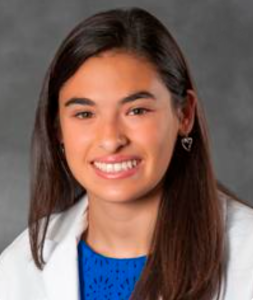Jennifer Lowenberg is originally from Northern Virginia but since getting married, have lived in New York, Texas, Japan, and now Maryland due to her husband’s career in the Air Force. She graduated from Cornell University with a degree in Nutritional Science where she was also a member of the track and field team, specializing in the pole vault. She then graduated with her Doctorate in Physical Therapy from Virginia Commonwealth University in 2019. Since graduating, she has worked with all different clients in the orthopedic setting and have enjoyed getting to know every single patient she treats. Outside of the office, she enjoy spending time with her family (her husband, her dog, and her 11 month old daughter), exploring nature and going on hikes, traveling, and trying all the different restaurants in the area.
Q: What was your CHE experience like? What were you involved in during your undergraduate years?
A: I had a good experience. I was able to take courses both inside and outside of my major which was a great opportunity for me. I made good friends and it was a small program. Being a D1 track athlete, practices and meets took a significant portion of my time.
Q: What career and Cornell related advice would you give Nutritional Sciences majors? Human Ecology students in general?
A: For Nutritional Sciences majors, I would say to use the major to do whatever you want to do especially due to the difficulty of the major. It is ok to be different. You do not have to do what all your peers are doing. Enjoy your major but do not be tied down to one thing. For Human Ecology students in general, I would say to take the time to explore. Utilize this opportunity to explore and figure out what you really want. Once you graduate, you do not always have the privilege of just taking classes so capitalize on this opportunity.
Q: What are some things that you wish you knew before going to graduate school?
A: It is a big time commitment. It is harder and easier than undergrad in certain aspects. In graduate school, there is a bigger concentration on what you want to do. Because everyone is in different stages in life, there are diverse experiences.
Q: I know that you took a gap year prior to going to graduate school. What did you do during that time and how did it help you professionally and personally?
A: In my gap year, I worked in a doctor’s office and coached track. This gap year was more of a mental break for me. It gave me the time to figure out what I wanted to do and gave me some needed time away from school.
Q: What is your work like? Could you tell me more about yourself?
A: I currently work in outpatient orthopedics. I work 8 to 9 hours a day excluding weekends. I deal with a variety of injuries in a diverse population. For example, I may be helping an athlete with regaining motion and helping another patient hold his/her grandchild again. I do both rewarding and stressful work. I love the office and the flexibility that a career in physical therapy gives me. It is also stressful in that not all patients are cooperative and recover to the extent I would like them to.
Q: How have your values and goals translated into what you’re doing now?
A: I value working directly with people and I value physical health and wellness. I get to work directly with patients, helping them gain or regain mobility and strength. As a former track athlete, I get to continue to help others with physical health and wellness.
Q: What is it like working as a PT in the military?
A: In my previous job as a PT in the military, it was a very unique experience. I loved the military population but it was stressful. Unlike most of the general population, they are motivated to go to PT but they require some support. It is hard to see how much they have to endure.

